|
The following affiliate links are to products we personally use in our apiary and on the homestead. "We are a participant in the Amazon Services LLC Associates Program, an affiliate advertising program designed to provide a means for us to earn fees by linking to Amazon.com and affiliated sites."
For the Full Beekeeper Start list click here. GLOVES: I use latex or nitrile gloves when working hives. They are less cumbersome and do not smash bees, however I keep a thicker pair of gloves ready in case of an extremely defensive hive which will sting through the gloves in high numbers. The nitrile/latex gloves do not stop stings but most bees will not sting through them. The thicker the mil the better and the tighter fit the better so that it is easy to pick up the queen(s) if necessary. Many times I will get multiple uses out of each pair. To order 14 mil Latex gloves click here: https://amzn.to/3OPaLnY For the Full Beekeeper Start list click here. Mentioned in the video is the Rossman Apiaries VENTILATED Master Bee Suit with Clear View Hat Veil (Catalog number BM03). The following link takes you to the website: https://www.gabees.com/ventilated-master-bee-suit-sale.html What you need before getting your bees:
Soon after establishing you will need the following equipment:
I will be adding more information and links to recommended products along with videos on how to use or why one product is recommended over another. In spring we also plan to have Top Bar Hive, Layens Hive, Long Lang Hive, Apimaye, Flow Hive, and Hex Hive shown on our youtube channel as well as available in person for viewing when attending our Beekeeping 101 or Leave-a-Beekeeper Class/Workshops. When attending these classes you receive a one year membership to the Southern Arizona Beekeeper's Association. As a member one of the perks is free rental of equipment: Hand crank extractor and oxalic acid vaporizer. Some people take longer to learn beekeeping than others. Some seem to be naturals at spotting the queen and deciphering the difference between sealed brood and capped honey. I try to help students figure out how to make it work in their minds so that it "clicks". Bobby was struggling. Couldn't see the difference between worker bees and the queen or even the queen compared to a drone. Reading the comb was just as difficult, if not more. It was frustrating for him, and me.
One day while helping him with an inspection, I spotted the queen and showed him. Big fat queen. "She's on this frame", I said. Nope, he couldn't see here. I tried to move the frame to dead center as she walked on the frame I kept moving to put her directly in front of Bobby's noise. Nope. This had been going on for months. A I took the frame with the queen on it and we moved away from the colony. I asked him if he was comfortable removing his veil. He was. He did. AND then eureka! We figured it out. It wasn't that Bobby wasn't grasping the differences it was that he couldn't SEE the differences. The mesh of the veil was blurring his vision. I see the queen! Oh look at that drone! That's a brood frame! We both were so relieved and so excited but then.......Bobby put his veil back on. The next time I helped with an inspection I arrived to find the new and improved veil Bobby made. He took a $50 veil and cut it. But a window in it! VIOLA! When a colony uses up all their resources and have nothing left in their own "pantry" to eat, they go "shopping" to find a full pantry.....
Actually, this is a nice way of saying it. The more correct way would be to say "hostile take-over". This usually occurs during dearth periods. A common trait in Africanized bees is to continue rearing young until they have used up all their food then search for a hive with resources to take over. Many times this is not Africanized taking over an European hive but a more aggressive colony overtaking a weaker one. Sometimes even a strong healthy one....what do the bees have to loose! The photo below shows an Africanized Usurpation Swarm taking over a small Africanized colony that I removed a few months prior. The established colony was recovering from the removal and being fed supplements of sugar syrup and protein patty. The starving group of bees decided to take over what they had. We were out in the bee-yard working with this happened. We searched for the queen in the group of bees hanging on the outside of the box and didn't find her. We opened the established colony and found two queens on separate frames, both being balled. Since the Africanized queens were unmarked and not knowing who would win the battle out of the worker bees, we caged both queens. The queen whose workers won fed their queen while the other queen was ignored, and starved in her cage. IF the hive being taken over was European, the marked queen would have been grabbed and put in a cage, the intruder queen killed. At this point since so many of the intruder worker bees had entered there was no separating the bees back. The European queen would need to stay in the cage as if she was being introduced to the colony. So always remember to keep your European queens marked. 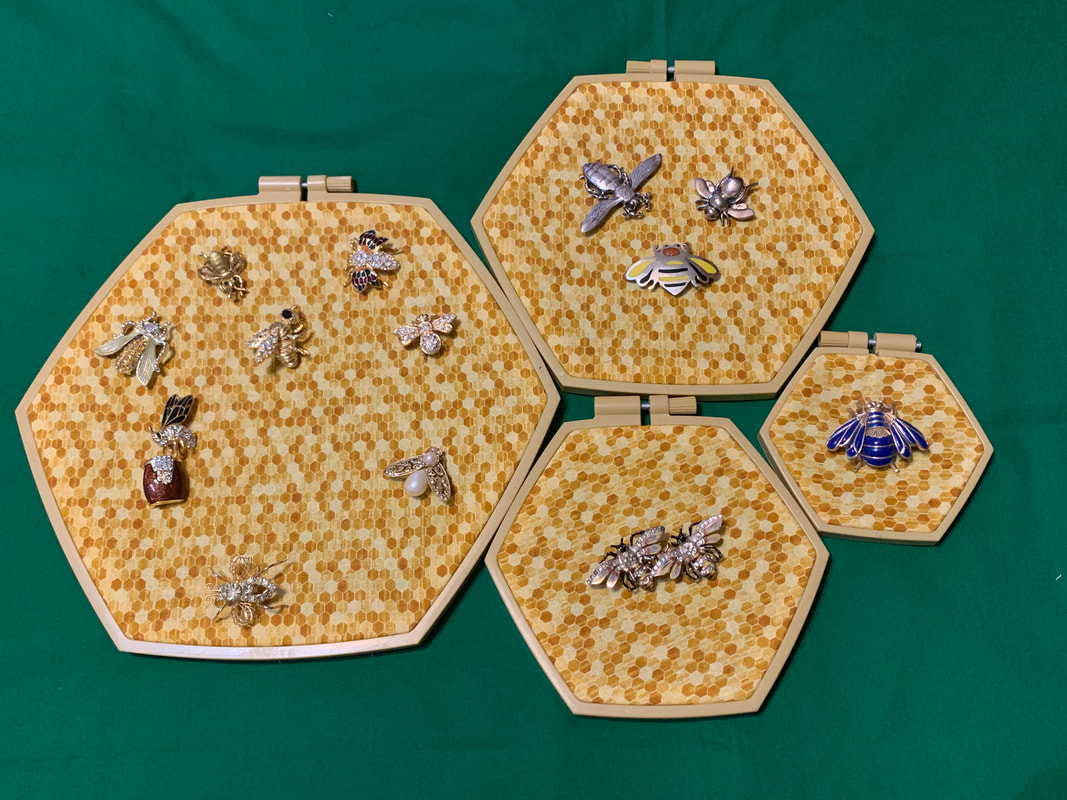
As a beekeeper, you tend to collect "Bee things" so what to do with all the awesome bee pins? An idea is to use a frame and fabric like many do in the antique jewelry world. We have used a floral tapestry and stuck the bees on the flowers like they were pollinating the field and hung it on the wall. So many great ideas floating around on Pinterest as well! What I decided to go with is a fabric that looks like bee bread (pollen) and hexagon shaped embroidery hoops. I could not find these in our local craft stores and in fact I did not know they even existed until I ran across them on Amazon. Sadly they are not wood, however they are easy to use. Just cut the fabric out allowing space around the larger of the hoops then put over the smaller hoop and press together and twist the screw. You don't even need to iron the fabric! the tension pulls the creases out!
The newest addition to the collection is this adorable 1960s Trifari Enamel Pin, apparently a well known and very sought after costume jewelry line. I didn't know this until running across this bee at an antique mall.
Sterling Silver bees / wasp and a fat little Mexican Alpaca Pin.
My favorite one......a costume jewelry double bee made in the 1920s to be worn with fur stoles.
Just some misc. more contemporary pieces. I have more but am thinking the way I would like to display these is by date ranges, so I ordered another package of hoops. If you would like to make these for yourself...I am even thinking of displaying some of my favorite bee fabrics with them, below is a link to follow.
As an Amazon Associate, I earn from qualifying purchases .This page contains affiliate links. If you choose to purchase after clicking a link, I may receive a commission at no extra cost to you.
Purchased 2 from Tractor Supply for $14.99 minus 20% discount. DeGroot growers, a Veteran owned company. Started them in 5 gallon planters to establish root system during the winter. Transferred them outside and planted April 2023.
Harvest: Early to Mid-June Water Use: Water Regularly during first growing season to establish deep root system. Pollinator: Required. Recommended include Golden Dorsett or Red Delicious. |
Archives
March 2024
Categories |
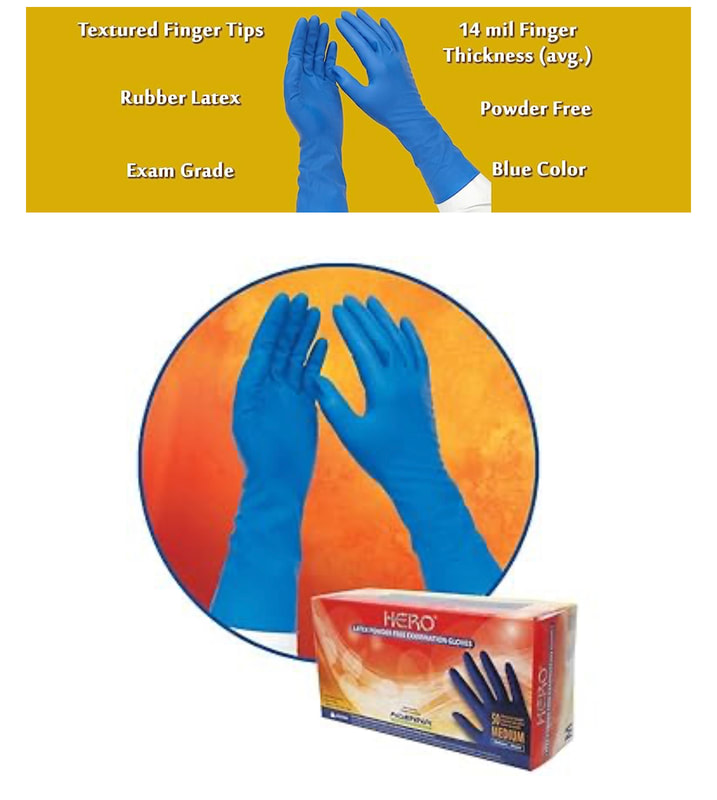
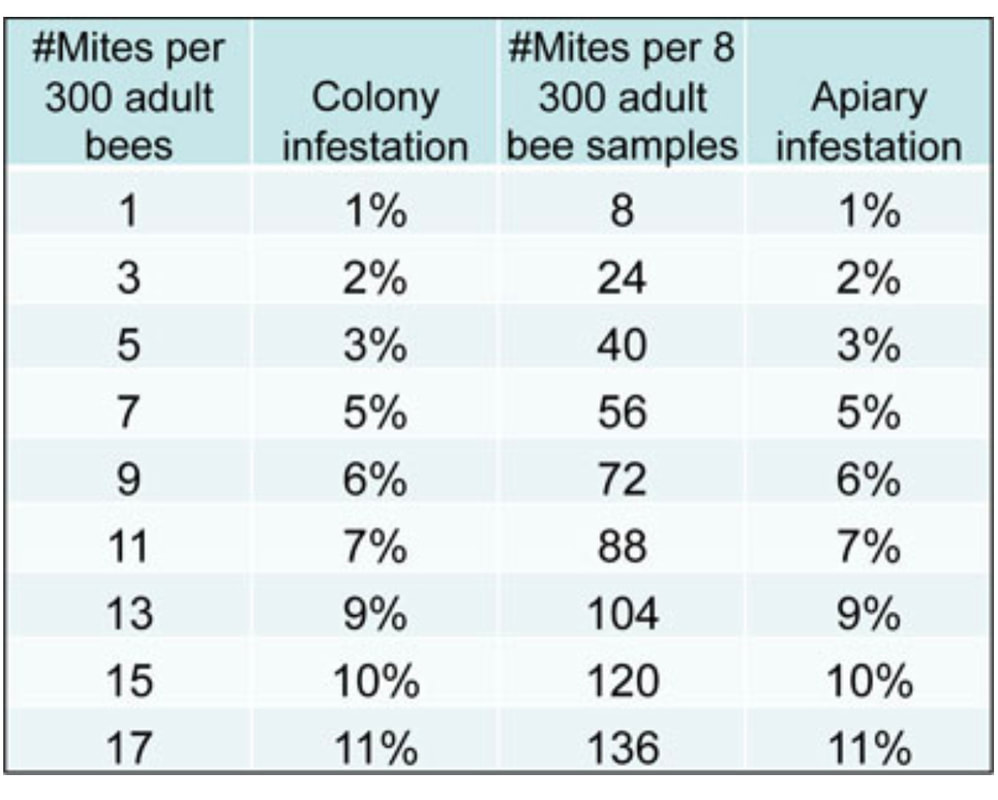
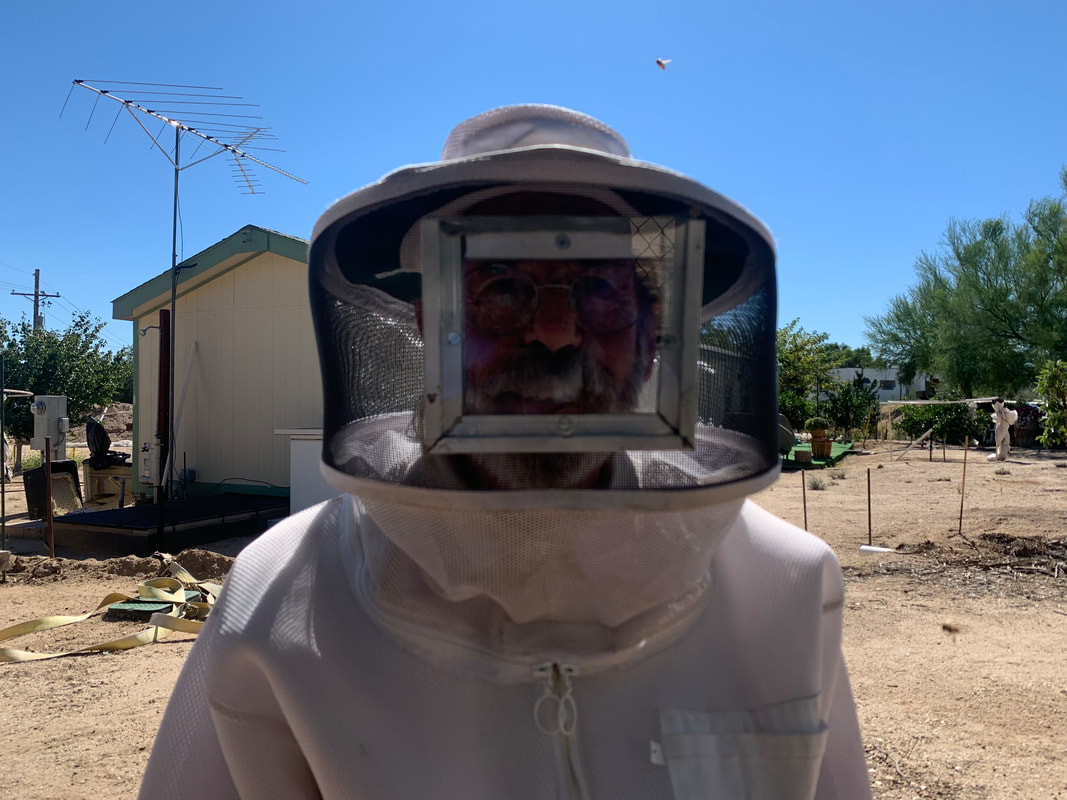
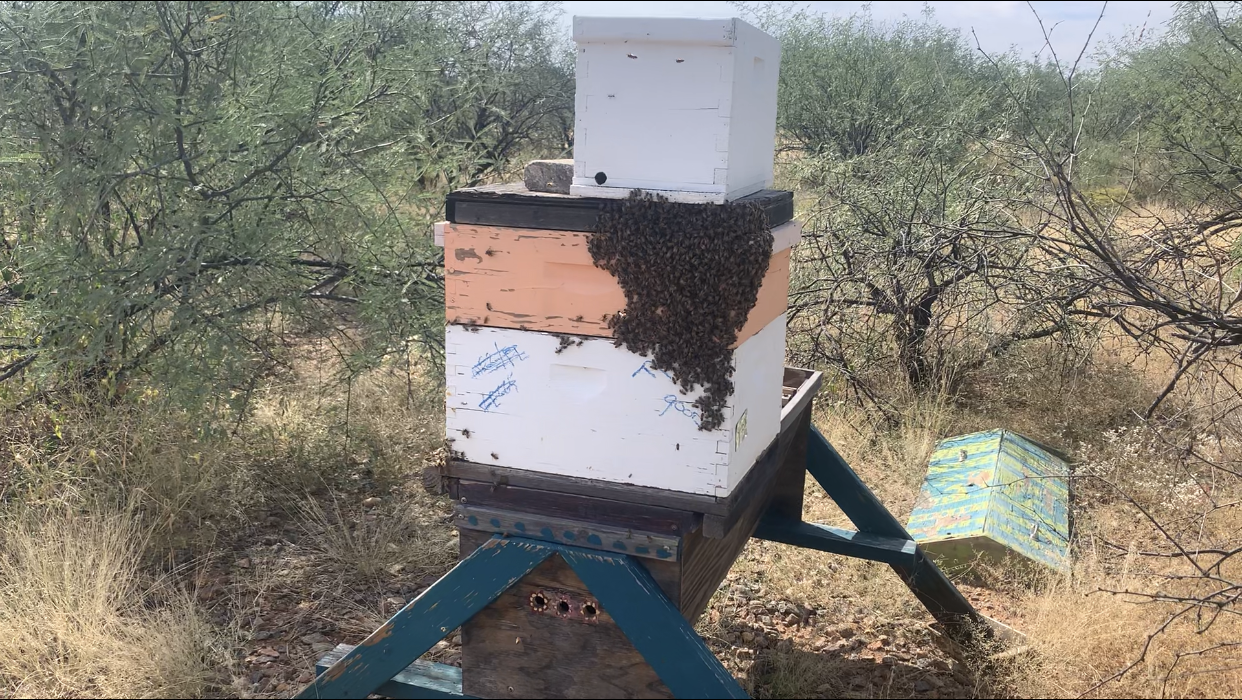
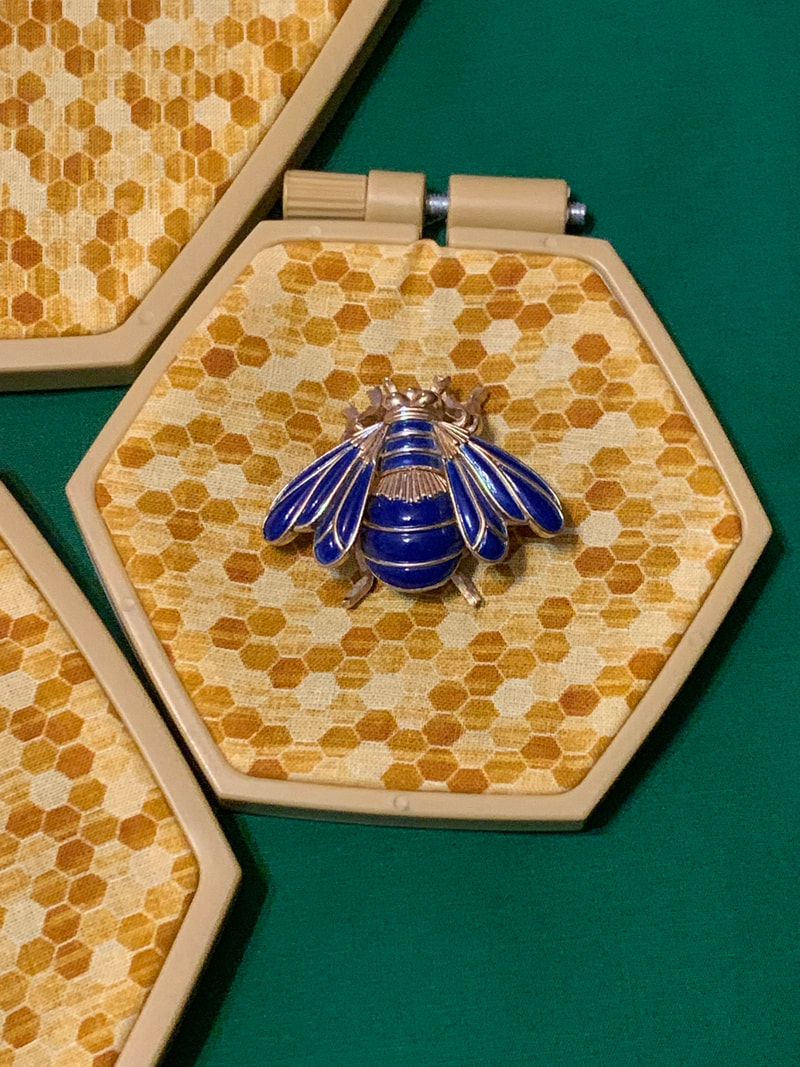
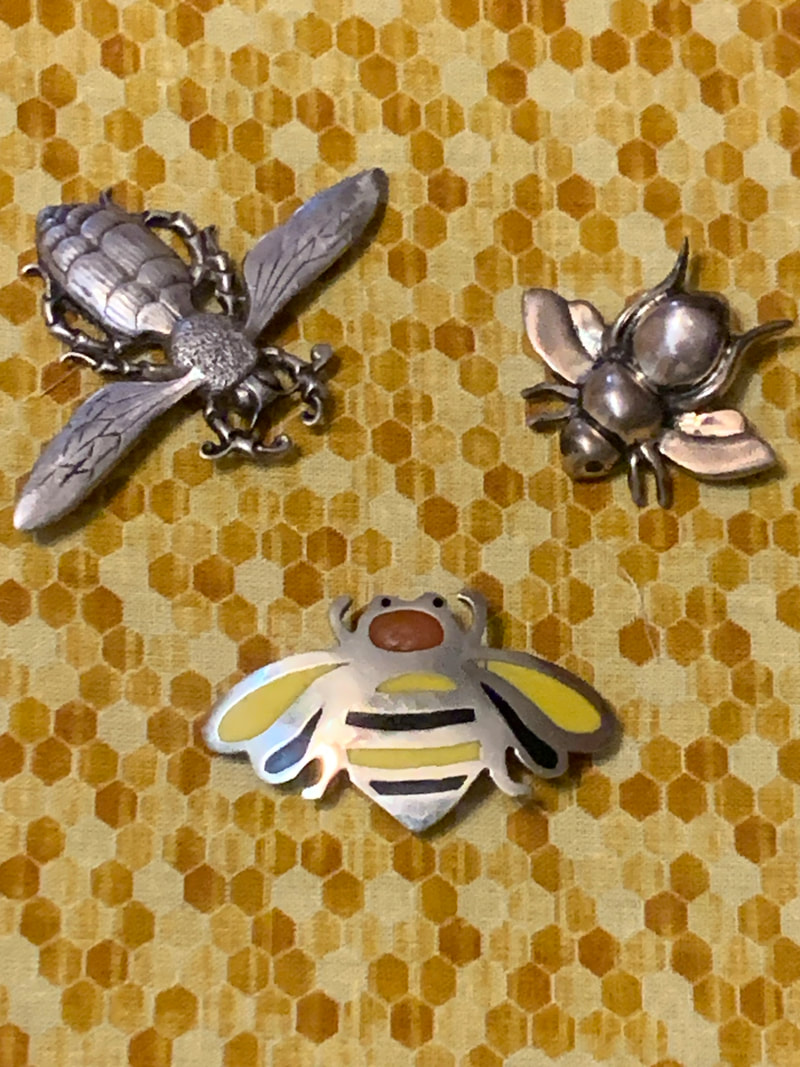
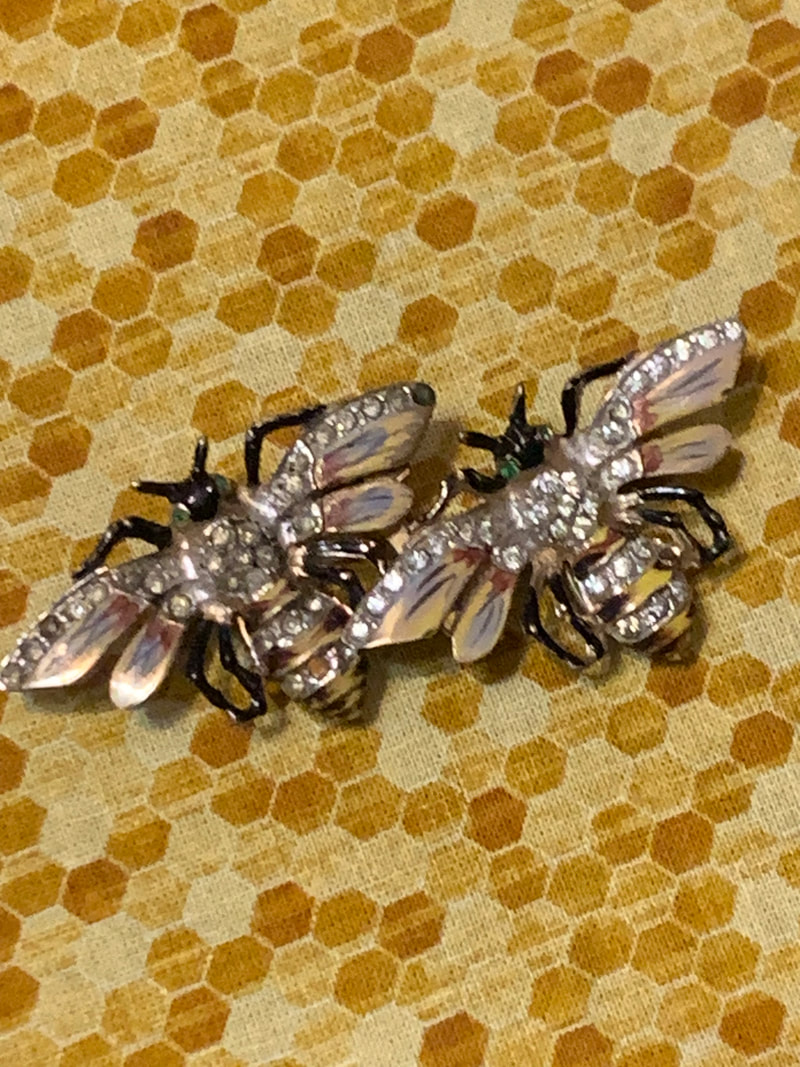
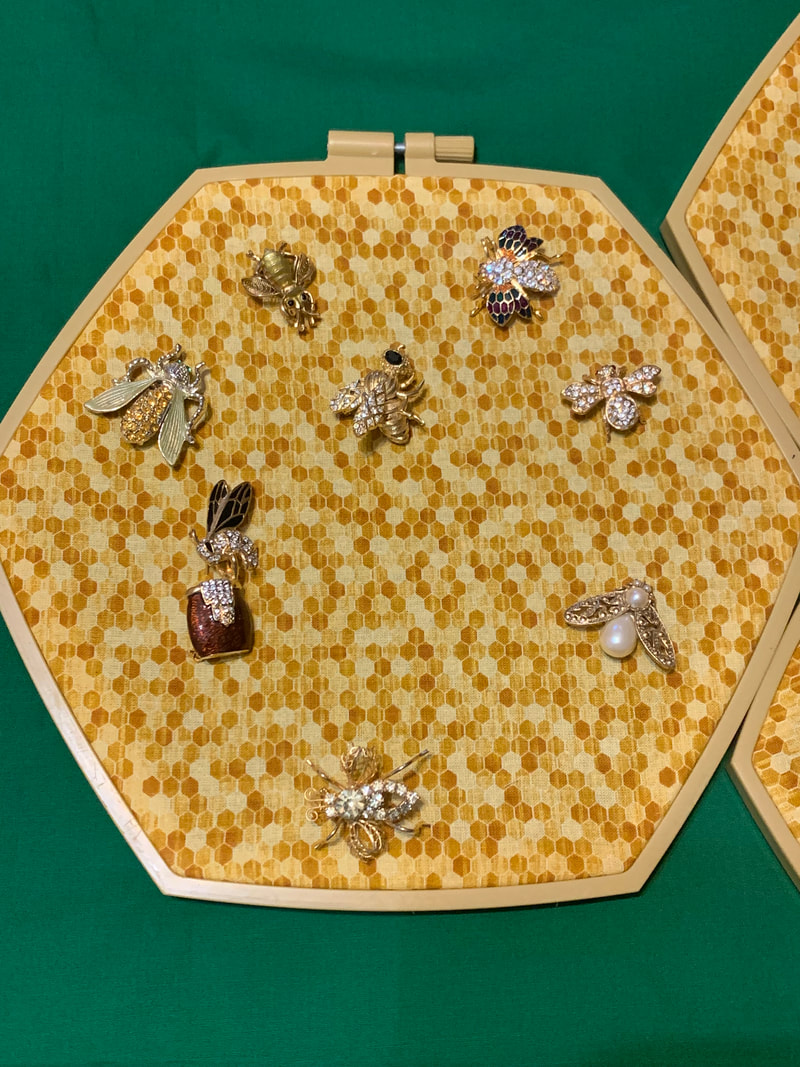
 RSS Feed
RSS Feed